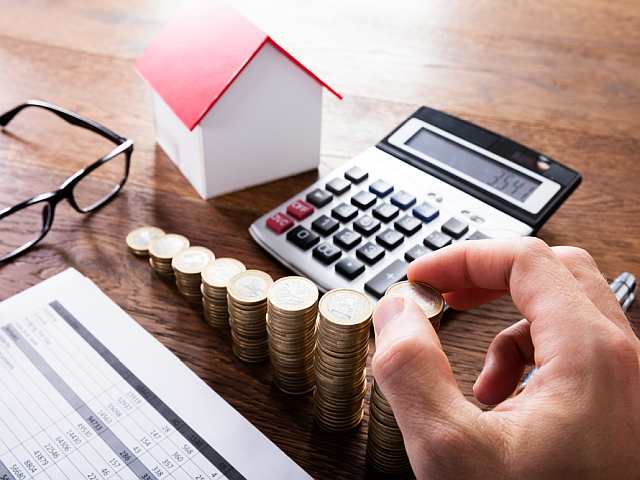You have saved for a deposit and the price tag on the advert for the charming house in your preferred neighbourhood fits perfectly into your budget, but unless you have also factored in the myriad associated costs of buying property, the dream can quickly become a nightmare, as well as a mounting financial burden.

This is according to Yael Geffen, CEO of Lew Geffen Sotheby’s International Realty, who says numerous costs arise throughout the purchasing process, including some which are upfront, out-of-pocket and non-refundable - even if the deal does not go through, whilst other costs will only hit your pocket once the sale is concluded.
“Generally, buyers should allow for between 8% and 10% of the purchase price of the property for the additional costs over and above the deposit, but it is essential that they do their homework to ensure they are aware of all the relevant fees and procedures before they even start looking for a home.”
Costs of buying a home
So, you’re finally ready to take the leap and make what is probably the biggest investment of your life. Here’s what you need to know avoid the budget being stretched to breaking point:
1. Bond registration - conveyancer’s fee
This is the conveyancing attorney’s fee for the service they provide to get your bond registered on behalf of the bank. The fee is governed by the Law Society tariff guidelines and is calculated according to the sale price, with the percentage charged declining as the property price increases.
2. Bond registration - Deeds Office registry fee
The fee charged by the Deeds Office for the legal registration of your mortgage bond.
3. Property transfer registration - conveyancer’s fee
The fee for the service provided by the attorneys to get your new home transferred from its old owner’s name and registered into yours. This fee is also governed by the Law Society tariff guidelines and is calculated according to the sale price, with the percentage charged declining as the property price increases.
4. Property transfer registration - Deeds Office registry fee
The fee charged by the Deeds Office for the legal registration of the transfer of the property into the name of the purchaser.
5. Transfer duty
This is a government tax levied for the transfer the property from the seller's name into the buyer's name. It generally constitutes the major portion of the additional costs involved and is calculated according to the sale price, with properties of under R750 000 being exempt from transfer duty.
If the seller is registered as a VAT vendor, no transfer duty is payable, however, the seller should have included VAT in the purchase price, failing which it shall be deemed to be included unless expressly excluded in the deed of sale. This is usually the case when buying property in a new development - the developer is generally VAT registered.
Use the home loan calculator to see what buying a home
will cost you
6. Home loan initiation fee

This fee is charged by the bank for the processing of the home loan application. It is a once-off administrative fee which is prescribed by the National Credit Act.
7. Body corporate or homeowner’s association fee
When purchasing a sectional title unit or a property in an estate which is managed by a homeowners’ association or body corporate, buyers might be required to pay a portion of the homeowners’ association or body corporate levy upfront.
Likewise, uninformed sellers can be in for a rude awakening if they aren’t aware of what is required to conclude the sale and, if they leave everything until the last minute, they could be faced with hefty bills which have to be settled in order for the sale to go through.
Costs of selling a home
Geffen cautions that whilst sellers have fewer costs to cover, the consequences of not planning ahead and doing thorough homework can be calamitous and the consequences far-reaching.
1. Bond cancellation - conveyancer’s fee
This is the conveyancer's fees for the cancellation of an existing bond over the property. In the event that the loan term has not expired, the seller must provide the bank with 90 days written notice prior to cancellation date of the intention to cancel the bond so as not to incur penalties. Prompt notification also avoids possible delays in transfer.
2. Compliance certificates
Property owners are required by law to ensure that the property is legally fit for sale before the transfer can take place. Occupancy, electrical, beetle, gas, plumbing and electric fencing compliance certificates are required. These each cost between R300 and R500 and take only a few days to acquire if all is in order, but if problems are discovered, then you also have bear the costs of the necessary work to be done before the certificate can be issued, which can delay transfer if left to the last minute.
3. Body corporate and homeowner’s levy (if applicable)
The body corporate or homeowner’s association might require payment from the seller of a portion of the body corporate levy figures until date of transfer.
4. Municipal provision for rates and taxes
This covers all rates and taxes that are payable in advance by the seller. It varies from one local authority to another, in accordance with the valuation of the property, but it is wise to work on an amount of around R5 000 per property.
5. Estate agent's commission
This is earned upon conclusion of the transaction and usually payable on registration of transfer from the proceeds of sale by the seller. The average estate agent’s commission usually ranges up to about 7.5%, however, this is not regulated in South Africa and there is no set rate.
Finally
“It is crucial that both buyers and sellers ensure that they have covered all their bases and have a clear understanding of the costs and procedures involved in the transaction as this can literally be the difference between saving money from the get-go or ending up with a daunting mountain of debt,” says Geffen.
“And, equally important to the seamless navigation of the lengthy process is to enlist the services of a knowledgeable and experienced property professionals with good track records as they will be able to guide you every step of the way.”





